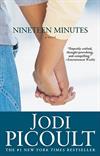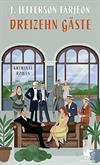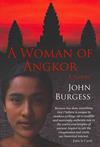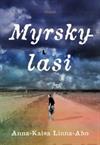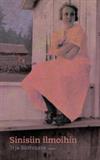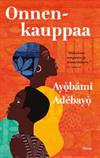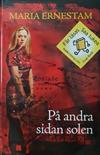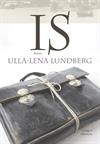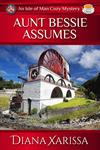The Left Hand Of Darkness
Registered by VariC of Prenzlauer Berg, Berlin Germany on 5/13/2008
 This Book is Currently in the Wild!
This Book is Currently in the Wild!
 This Book is Currently in the Wild!
This Book is Currently in the Wild!
2 journalers for this copy...
I found this at some used-book store. It's a real classic of the genre, and I've read it once but remember so little of it that I'll want to read it again before deciding what to do with it.
It's not hard to see why this book has become a classic. It tackles a number of important themes, with interesting things to say, and is also an exciting adventure. I think I missed quite a bit when I last read it and am glad that I tried again.
The most prominent theme is of course gender. The ambisexuality of the Getheners, when contrasted with the masculinity of Genly, provides food for thought on gender roles in society. (Interestingly, Le Guin uses the word “bisexual” to mean a race with two sexes.) Genly can never really understand aspects of the Gethen society, as there is no division in two, and there doesn't seem to be any “underclass” based solely on biological divisions.
Genly's masculine thinking is the most evident in how he essentially sees everybody as a man, the default for him. The pronoun “he” is used of every Gethener, even of the person Genly calls his “landlady”. Locked into this default mode, Genly sees any behavior he considers feminine to be a weakness in the person, and has to struggle to realize that, on Gethen, behaviors are not divided by gender lines. With the pronoun usage, it is also hard for the reader (at least this reader) to avoid slipping into the same default mode as Genly. It would have been very interesting to read this book if all Getheners were referred to as “she”. I wonder how much that would have changed the experience. I suspect that especially the interaction between Genly and Estraven would have had very different undertones and connotations.
In a way, this book is quite clearly a product of its time. Societies where men and women are equal get referred to, but from Genly's descriptions it does not seem as if there were a truly equal society. Gender differences are noted to have both biological and societal components, but the text does not go very far ahead of its environment in that respect. Still, to me it has aged better than the other classic of gender-oriented SF, Joanna Russ's The Female Man.
The other significant theme I found while reading was the concept of trust. Genly refuses to trust the inhabitants enough to call his starship down, until they publicly announce it, but he does not see how that requires the inhabitants to trust him that there really is a starship. The breaking of the cycle is attempted by Estraven, but Genly, still unfamiliar with the society and its codes of conduct, cannot understand what Estraven is doing. Only by the forced association with Estraven does Genly eventually find his trust.
Establishing the trust eventually happens between individuals, and this is another major concept in the book. Gethen is entering the period of nation-states, and struggling with concepts such as patriotism. Loyalty is still mainly to the clan, the tribe, and not to the king in a far-away capital. Genly is a product of a different culture. He professes loyalty to mankind (yes, “mankind”, not “humanity”), and Estraven is also attempting to see beyond the boundaries of his own culture, to break his upbringing and think of the larger picture.
Eventually, however, it is not a lofty idea of the totality of humanity that triumphs, but the bonds formed between individual humans. And perhaps this is the key to thinking globally in general? An individual is predisposed to dividing people into “I” and “the others”, and unification happens when the concept of “I” is expanded, to cover the tribe, the nation, but always with “the other” being seen as a separate group. So what about not trying to expand or unify but being separate, always separate? Bonds formed between people of “the same kind” lead to othering of everyone else, and can be exploited through that, so better to just form bonds between people and celebrate the differences.
Is the above a valid reading of this book? There is a strong undercurrent of unification throughout the text: nations forming on Gethen, Gethen joining the Ekumen, and naturally the unified sexes of the Getheners. So how can I read it as celebrating the differences? But as I read it, true unification of humanity is only possible when we acknowledge that everyone is different, that there is no fundamental grouping, division into “us” and “them”
I do not know yet what to do with this book. I doubt I will wild release it, as I would like to hear what others think, so I think I'll just find someone to give it to. And I really recommend reading it a second time if you found it interesting on the first time but didn't feel like you got much out of it.
The most prominent theme is of course gender. The ambisexuality of the Getheners, when contrasted with the masculinity of Genly, provides food for thought on gender roles in society. (Interestingly, Le Guin uses the word “bisexual” to mean a race with two sexes.) Genly can never really understand aspects of the Gethen society, as there is no division in two, and there doesn't seem to be any “underclass” based solely on biological divisions.
Genly's masculine thinking is the most evident in how he essentially sees everybody as a man, the default for him. The pronoun “he” is used of every Gethener, even of the person Genly calls his “landlady”. Locked into this default mode, Genly sees any behavior he considers feminine to be a weakness in the person, and has to struggle to realize that, on Gethen, behaviors are not divided by gender lines. With the pronoun usage, it is also hard for the reader (at least this reader) to avoid slipping into the same default mode as Genly. It would have been very interesting to read this book if all Getheners were referred to as “she”. I wonder how much that would have changed the experience. I suspect that especially the interaction between Genly and Estraven would have had very different undertones and connotations.
In a way, this book is quite clearly a product of its time. Societies where men and women are equal get referred to, but from Genly's descriptions it does not seem as if there were a truly equal society. Gender differences are noted to have both biological and societal components, but the text does not go very far ahead of its environment in that respect. Still, to me it has aged better than the other classic of gender-oriented SF, Joanna Russ's The Female Man.
The other significant theme I found while reading was the concept of trust. Genly refuses to trust the inhabitants enough to call his starship down, until they publicly announce it, but he does not see how that requires the inhabitants to trust him that there really is a starship. The breaking of the cycle is attempted by Estraven, but Genly, still unfamiliar with the society and its codes of conduct, cannot understand what Estraven is doing. Only by the forced association with Estraven does Genly eventually find his trust.
Establishing the trust eventually happens between individuals, and this is another major concept in the book. Gethen is entering the period of nation-states, and struggling with concepts such as patriotism. Loyalty is still mainly to the clan, the tribe, and not to the king in a far-away capital. Genly is a product of a different culture. He professes loyalty to mankind (yes, “mankind”, not “humanity”), and Estraven is also attempting to see beyond the boundaries of his own culture, to break his upbringing and think of the larger picture.
Eventually, however, it is not a lofty idea of the totality of humanity that triumphs, but the bonds formed between individual humans. And perhaps this is the key to thinking globally in general? An individual is predisposed to dividing people into “I” and “the others”, and unification happens when the concept of “I” is expanded, to cover the tribe, the nation, but always with “the other” being seen as a separate group. So what about not trying to expand or unify but being separate, always separate? Bonds formed between people of “the same kind” lead to othering of everyone else, and can be exploited through that, so better to just form bonds between people and celebrate the differences.
Is the above a valid reading of this book? There is a strong undercurrent of unification throughout the text: nations forming on Gethen, Gethen joining the Ekumen, and naturally the unified sexes of the Getheners. So how can I read it as celebrating the differences? But as I read it, true unification of humanity is only possible when we acknowledge that everyone is different, that there is no fundamental grouping, division into “us” and “them”
I do not know yet what to do with this book. I doubt I will wild release it, as I would like to hear what others think, so I think I'll just find someone to give it to. And I really recommend reading it a second time if you found it interesting on the first time but didn't feel like you got much out of it.
Journal Entry 3 by CandyDarling from Helsinki, Uusimaa / Nyland Finland on Saturday, February 20, 2010
I got this book from VariC a week ago when we went out for coffee with RoryG, who also wants to read the book. Sorry for not journaling earlier!
-------------------------------
The Left Hand of Darkness is a science fiction novel by Ursula K. Le Guin, first published in 1969.
The book is one of the first major works of feminist science fiction and is one in a series of books by Le Guin all set in the fictional Hainish universe. It won the 1969 Nebula and 1970 Hugo awards.
Amazon.com Review
Genly Ai is an emissary from the human galaxy to Winter, a lost, stray world. His mission is to bring the planet back into the fold of an evolving galactic civilization, but to do so he must bridge the gulf between his own culture and prejudices and those that he encounters. On a planet where people are of no gender--or both--this is a broad gulf indeed. The inventiveness and delicacy with which Le Guin portrays her alien world are not only unusual and inspiring, they are fundamental to almost all decent science fiction that has been written since. In fact, reading Le Guin again may cause the eye to narrow somewhat disapprovingly at the younger generation: what new ground are they breaking that is not already explored here with greater skill and acumen? It cannot be said, however, that this is a rollicking good story. Le Guin takes a lot of time to explore her characters, the world of her creation, and the philosophical themes that arise.
If there were a canon of classic science fiction, The Left Hand of Darkness would be included without debate. Certainly, no science fiction bookshelf may be said to be complete without it. But the real question: is it fun to read? It is science fiction of an earlier time, a time that has not worn particularly well in the genre. The Left Hand of Darkness was a groundbreaking book in 1969, a time when, like the rest of the arts, science fiction was awakening to new dimensions in both society and literature. But the first excursions out of the pulp tradition are sometimes difficult to reread with much enjoyment. Rereading The Left Hand of Darkness, decades after its publication, one feels that those who chose it for the Hugo and Nebula awards were right to do so, for it truly does stand out as one of the great books of that era. It is immensely rich in timeless wisdom and insight.
The Left Hand of Darkness is science fiction for the thinking reader, and should be read attentively in order to properly savor the depth of insight and the subtleties of plot and character. It is one of those pleasures that requires a little investment at the beginning, but pays back tenfold with the joy of raw imagination that resonates through the subsequent 30 years of science fiction storytelling. Not only is the bookshelf incomplete without owning it, so is the reader without having read it. --L. Blunt Jackson
Wikipedia: The Left Hand of Darkness
-------------------------------
The Left Hand of Darkness is a science fiction novel by Ursula K. Le Guin, first published in 1969.
The book is one of the first major works of feminist science fiction and is one in a series of books by Le Guin all set in the fictional Hainish universe. It won the 1969 Nebula and 1970 Hugo awards.
Amazon.com Review
Genly Ai is an emissary from the human galaxy to Winter, a lost, stray world. His mission is to bring the planet back into the fold of an evolving galactic civilization, but to do so he must bridge the gulf between his own culture and prejudices and those that he encounters. On a planet where people are of no gender--or both--this is a broad gulf indeed. The inventiveness and delicacy with which Le Guin portrays her alien world are not only unusual and inspiring, they are fundamental to almost all decent science fiction that has been written since. In fact, reading Le Guin again may cause the eye to narrow somewhat disapprovingly at the younger generation: what new ground are they breaking that is not already explored here with greater skill and acumen? It cannot be said, however, that this is a rollicking good story. Le Guin takes a lot of time to explore her characters, the world of her creation, and the philosophical themes that arise.
If there were a canon of classic science fiction, The Left Hand of Darkness would be included without debate. Certainly, no science fiction bookshelf may be said to be complete without it. But the real question: is it fun to read? It is science fiction of an earlier time, a time that has not worn particularly well in the genre. The Left Hand of Darkness was a groundbreaking book in 1969, a time when, like the rest of the arts, science fiction was awakening to new dimensions in both society and literature. But the first excursions out of the pulp tradition are sometimes difficult to reread with much enjoyment. Rereading The Left Hand of Darkness, decades after its publication, one feels that those who chose it for the Hugo and Nebula awards were right to do so, for it truly does stand out as one of the great books of that era. It is immensely rich in timeless wisdom and insight.
The Left Hand of Darkness is science fiction for the thinking reader, and should be read attentively in order to properly savor the depth of insight and the subtleties of plot and character. It is one of those pleasures that requires a little investment at the beginning, but pays back tenfold with the joy of raw imagination that resonates through the subsequent 30 years of science fiction storytelling. Not only is the bookshelf incomplete without owning it, so is the reader without having read it. --L. Blunt Jackson
Wikipedia: The Left Hand of Darkness
I read this in the summer of 2015, but found it hard to put my thoughts into words, so I never journaled the book back then. I found The Left Hand Of Darkness a bit hard to read, as it was quite slow moving at times, and there were many strange names and concepts that you had to keep track of. Nevertheless, I was interested to see how the story ends, and enjoyed reading the book, although at times I didn't feel like picking it up again.
I found it interesting that at first I didn't realize that the Getheners were ambisexual, as it seemed like the society consisted of nothing but men. VariC summed up my thought exactly when he wrote "Genly's masculine thinking is the most evident in how he essentially sees everybody as a man, the default for him. The pronoun “he” is used of every Gethener, even of the person Genly calls his “landlady”. Locked into this default mode, Genly sees any behavior he considers feminine to be a weakness in the person, and has to struggle to realize that, on Gethen, behaviors are not divided by gender lines. With the pronoun usage, it is also hard for the reader (at least this reader) to avoid slipping into the same default mode as Genly. It would have been very interesting to read this book if all Getheners were referred to as “she”. I wonder how much that would have changed the experience."
I think it would also have been interesting to read this book in Finnish, where there is only one pronoun "hän" that is used of both men and women, but I'm quite sure that the experience would not have been much different, because we Finns tend to default to thinking of men when "hän" is used. I recommend reading what Mila Engelberg has written on the subject, for example her doctoral dissertation Yleispätevä mies : Suomen kielen geneerinen, piilevä ja kieliopillistuva maskuliinisuus. (You can read the abstract in English from the link if you don't know Finnish.)
I don't really know what to say of this book that VariC and other haven't yet said. I did read a few interesting pieces while thinking about what to say about the book, I'll link them here:
Winter’s Tale: The Left Hand of Darkness by Isaac Yuen
The truth is self-evident: Ursula Le Guin's Left Hand of Darkness isn't about gender by Josh Wimmer
I found it interesting that at first I didn't realize that the Getheners were ambisexual, as it seemed like the society consisted of nothing but men. VariC summed up my thought exactly when he wrote "Genly's masculine thinking is the most evident in how he essentially sees everybody as a man, the default for him. The pronoun “he” is used of every Gethener, even of the person Genly calls his “landlady”. Locked into this default mode, Genly sees any behavior he considers feminine to be a weakness in the person, and has to struggle to realize that, on Gethen, behaviors are not divided by gender lines. With the pronoun usage, it is also hard for the reader (at least this reader) to avoid slipping into the same default mode as Genly. It would have been very interesting to read this book if all Getheners were referred to as “she”. I wonder how much that would have changed the experience."
I think it would also have been interesting to read this book in Finnish, where there is only one pronoun "hän" that is used of both men and women, but I'm quite sure that the experience would not have been much different, because we Finns tend to default to thinking of men when "hän" is used. I recommend reading what Mila Engelberg has written on the subject, for example her doctoral dissertation Yleispätevä mies : Suomen kielen geneerinen, piilevä ja kieliopillistuva maskuliinisuus. (You can read the abstract in English from the link if you don't know Finnish.)
I don't really know what to say of this book that VariC and other haven't yet said. I did read a few interesting pieces while thinking about what to say about the book, I'll link them here:
Winter’s Tale: The Left Hand of Darkness by Isaac Yuen
The truth is self-evident: Ursula Le Guin's Left Hand of Darkness isn't about gender by Josh Wimmer
Journal Entry 5 by CandyDarling at Vuosaaren kirjasto in Helsinki, Uusimaa / Nyland Finland on Thursday, June 22, 2023
Released 10 mos ago (6/22/2023 UTC) at Vuosaaren kirjasto in Helsinki, Uusimaa / Nyland Finland
WILD RELEASE NOTES:
I left the book on the book exchange shelf at Vuosaari library.
-----------------------------------------
If you're reading this, you've caught a book! Congratulations, and welcome to BookCrossing. You've come to a friendly place. Hope you enjoy the book, and the free no-spam website. Please make a short note to let me know what you thought of the book, then feel free to keep it or set it free to continue its journey. If you choose to join BookCrossing, you'll be able to see where the book goes on its travels!
Happy Reading!
-----------------------------------------
If you're reading this, you've caught a book! Congratulations, and welcome to BookCrossing. You've come to a friendly place. Hope you enjoy the book, and the free no-spam website. Please make a short note to let me know what you thought of the book, then feel free to keep it or set it free to continue its journey. If you choose to join BookCrossing, you'll be able to see where the book goes on its travels!
Happy Reading!

